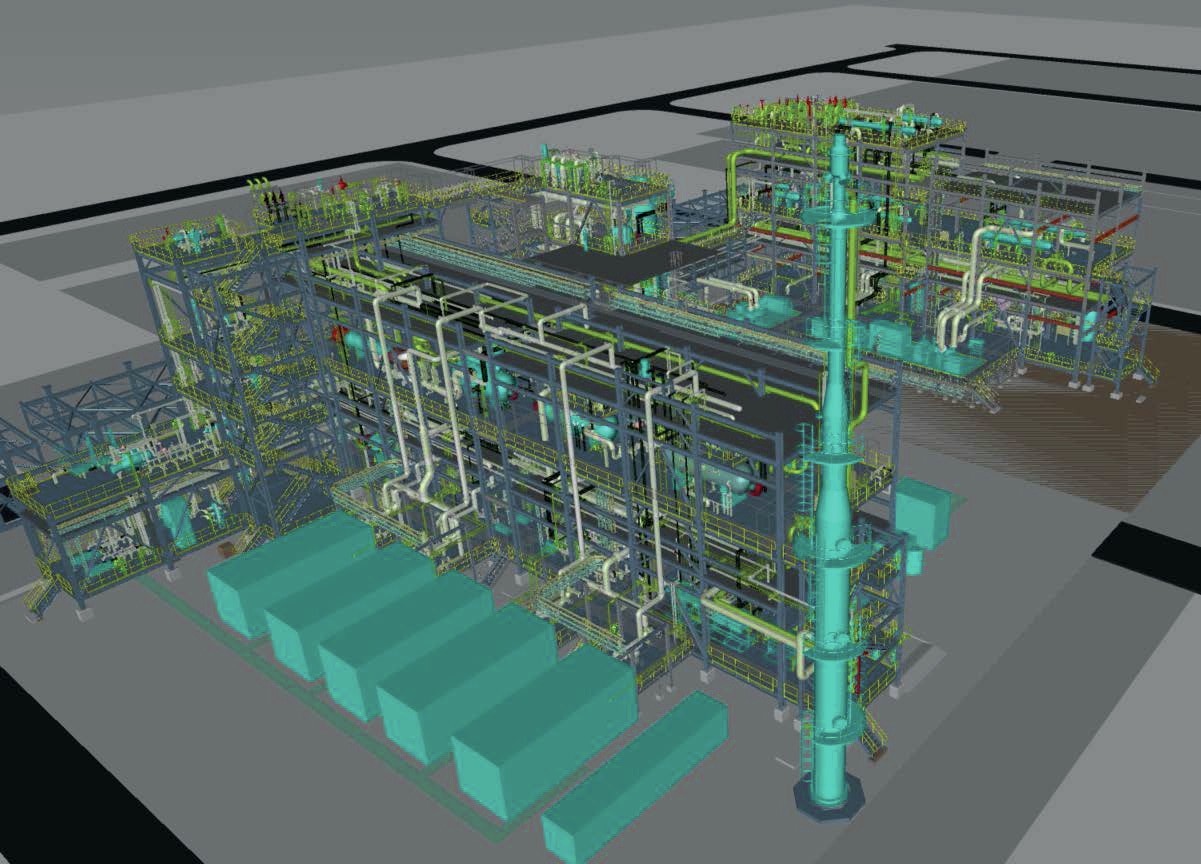Fertilizer International 506 Jan-Feb 2022

31 January 2022
Beirut’s aftershocks

“Most experts agree that the safe production, transport and storage of ammonium nitrate is perfectly possible… most accidents occur in storage or in transport due to a single cause: an uncontrolled fire.”
Ammonium nitrate (AN) is valued as a nitrogen fertilizer and mining explosive. Consequently, it is also widely traded and distributed globally. Some 20 percent of the 49 million tonnes manufactured annually is shipped around the world and stored in warehouses at various ports and inland destinations.
One such shipment of AN arrived in Beirut in 2013 on a dilapidated cargo ship, the MV Rhosus. En route from Georgia to a mining operation in Mozambique, this was, in fact, an unscheduled stop. But, unable to pay its port fees and reportedly leaking, the Russian-owned vessel had its AN cargo impounded and brought ashore.
That’s how, in the summer of 2020, some 2,750 tonnes of mining explosive happened to be stored at Warehouse 12 in the Port of Beirut, Lebanon. Having sat there for six long years, in hot and humid conditions, largely unnoticed and neglected, in the centre of a densely populated city of two million people.
That was until the evening of 4th August when welders working at the warehouse accidentally ignited nearby combustible material. The resulting fire spread for around 14 minutes until it reached the AN pile. Then, at eight minutes past six, something cataclysmic happened.
At that moment, a massive chemical detonation occurred when nearly 3,000 tonnes of AN suddenly ignited, releasing an enormous wave of pressure and heat. The resulting supersonic blast instantaneously killed 220 people and injured more than 6,500, subsequently leaving around 300,000 people homeless.
This huge blast, which was heard in Cyprus 125 miles away, also created a 140-metre-wide crater and a seismic shock measuring magnitude 3.3 on the Richter scale. Nearby warehouses, grain silos and docked ships were instantly demolished, while 50,000 residential houses, 178 schools and nine hospitals were severely damaged. As well as the appalling human cost, the massive economic damage inflicted on Beirut by the blast is likely to exceed $6.7 billion.
So, what created this dreadful sequence of events on that warm Mediterranean evening 18 months ago – and was it avoidable?
After all, most experts agree that the safe production, transport and storage of ammonium nitrate is perfectly possible. Indeed, within the fertilizer industry, continuous improvements are being made to nitrate process safety and sustainability (see p20).
Writing about the tragic lessons of Beirut, fire protection expert Vyto Babrauskas said: “Manufacturers [have] learned to be safety conscious and there have been very few accidents in connection with the actual manufacturing process.”
Instead, concludes Babrauskas, almost all AN accidents occur in storage or in transport due to a single cause: an uncontrolled fire.
On 14th December last year, UN/OECD convened a one-day seminar on the 2020 Beirut port explosion and, in its aftermath, how best to manage the risks of AN storage, handling and transport.
Speaking at the event, Kishore Shah, a consultant to Fertilizers Europe, pointed out that: “Many codes and guidance documents for the safe storage of AN… are freely available for all. Their general message is that it is a very stable substance and its hazards are well known and understood. They stipulate similar safety expectations: non-combustible building design; avoidance of contamination; effective segregation from incompatible materials, sources of heat and shock. These requirements are not difficult to understand and implement.”
What remains a challenge, though, is the fragmented regulation and division of responsibilities along international supply chains. These can be split between the primary producer, the transport industry, port authorities, local or national governments, fertilizer blenders and the merchant/distributor/farmer etc.
The industry recognises this, as Kishore Shah comments: “Most primary producers recognise that prevention of serious incidents involving fertilizer is vital, and therefore seek to work with highly professional agents, ship owners and port operators.”
Governmental, regulatory and compliance failures were clearly key factors in the Beirut explosion. It is therefore unsurprising that the need to strengthen national legal frameworks and regulatory compliance was specifically flagged up in the conclusions of last December’s UN/OECD seminar.
It is impossible to legislate for every eventuality. But there are usually steps which could and should have been taken to prevent disaster.
In Beirut, officials had repeatedly tried to warn government of the potential risks. At least 10 times over a six year period, individuals from Lebanon’s customs, military, security agencies and judiciary raised the alarm about the large stockpile of explosive chemicals being kept at the port, according to an investigation by the Associated Press.
The real tragedy for Beirut and its people is that none of these warnings were ever acted on.






